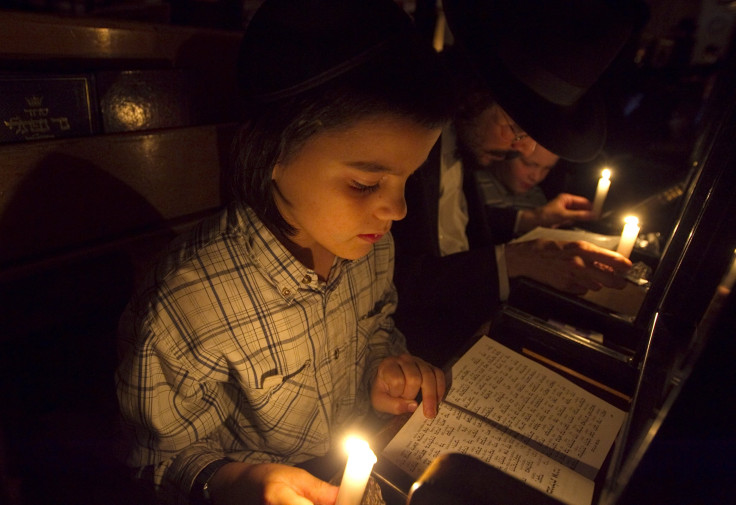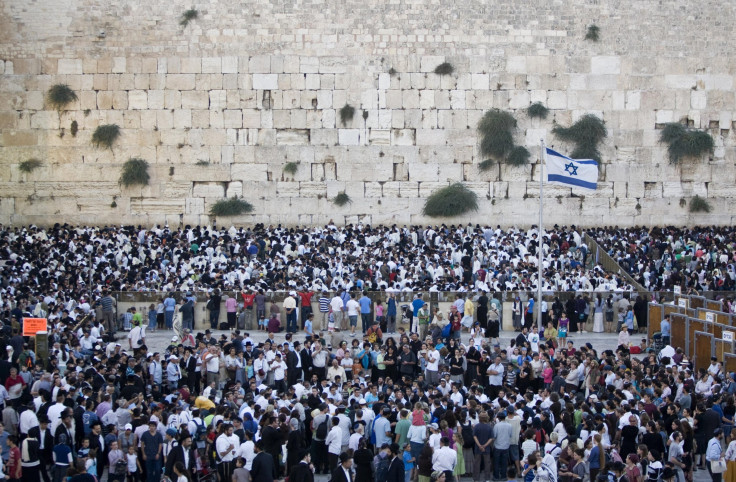What Is Tisha B'av 2015? Jewish Day Of Mourning Is Saddest Holiday Of The Year

If you’re into the celebratory holiday vibe, Tisha B’Av might not be your day. It’s basically the saddest day on the Jewish calendar. The ninth day of the Hebrew month of Av is when many Jews choose to fast in commemoration of the horrific events that befell the Jewish people that day in history. So cursed is that day, Chabad.org said, it was likely set aside by God specifically as a day of mourning and suffering.
The Talmud made mention of five separate tragedies inflicted on the Jewish people that day, but since the Talmud was written more than 1,500 years ago, the date has racked up a few more. Tisha B’av was set to run from sunset Saturday to sunset Sunday.
Seven Tragedies That Fell on the Ninth of Av:
1) The generation of Israelites who wandered the desert following their exodus from Egypt were forbade from entering the Holy Land.
2) The First Temple was destroyed in 423 BCE.
3) The Second Temple was destroyed the same day some five centuries later.
4) Roman rulers harshly suppressed a Jewish revolt led by Simon bar Kochba, who Jews believed was a fulfillment of messianic prophesy, brutally slaughtering the Jewish rebels.
5) Jews were expelled from England in 1290 CE.
6) The Golden Era of Spain ended in 1492 as Queen Isabella and her husband Ferdinand ordered Jews be banished from the land.
7) Germany declared war on Russia, prompting World War I, on the 9th of Av. Some have drawn a connection between the launch of World War I and the slaughter of Jews during the Holocaust, during World War II.

In Mourning of Tragedy, Many Jews:
1) Refrain from eating or drinking.
2) Offer extra and special prayer and recitation.
3) Refrain from using anointment like perfume or cologne.
4) Refrain from wearing shoes with leather.
5) Refrain from greeting or giving gifts to others.
6) Refrain from sitting on a chair that is higher than a foot off the ground for the first half of the day.
7) Refrain from work, including housework, which diverts the mind from mourning until midday.
8) Refrain from bathing.
Not Familiar? Don’t Fear.
If you've never heard of the holiday, don’t despair. It’s not exactly considered one of the highly observed holidays, though many do consider it a spiritually significant and meaningful one.
“Tisha B’Av doesn’t come close,” Rabbi Judith Hauptman, who teaches Talmud at the Jewish Theological Seminary, told the Forward. “If you look at the most-observed holidays on a bar graph, Tisha B’Av doesn’t get a ¼ inch.”
© Copyright IBTimes 2025. All rights reserved.






















